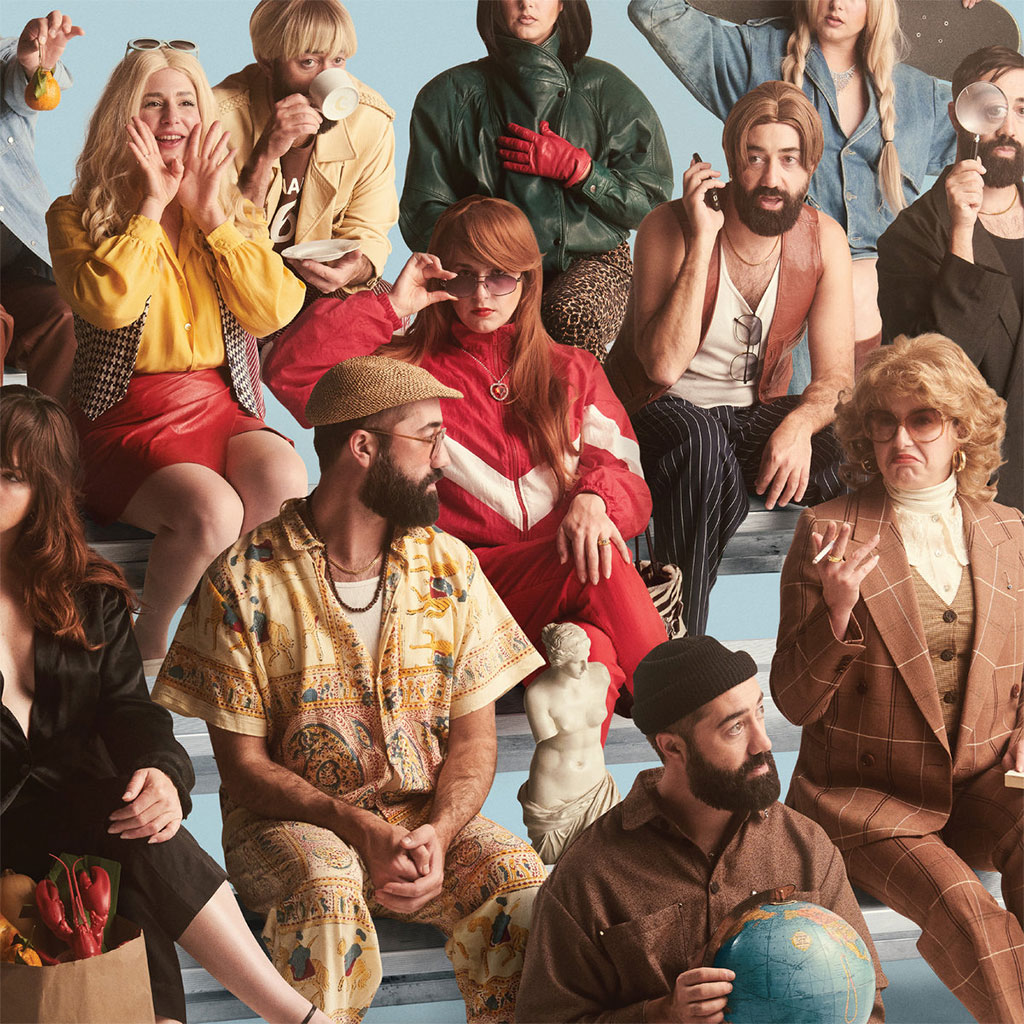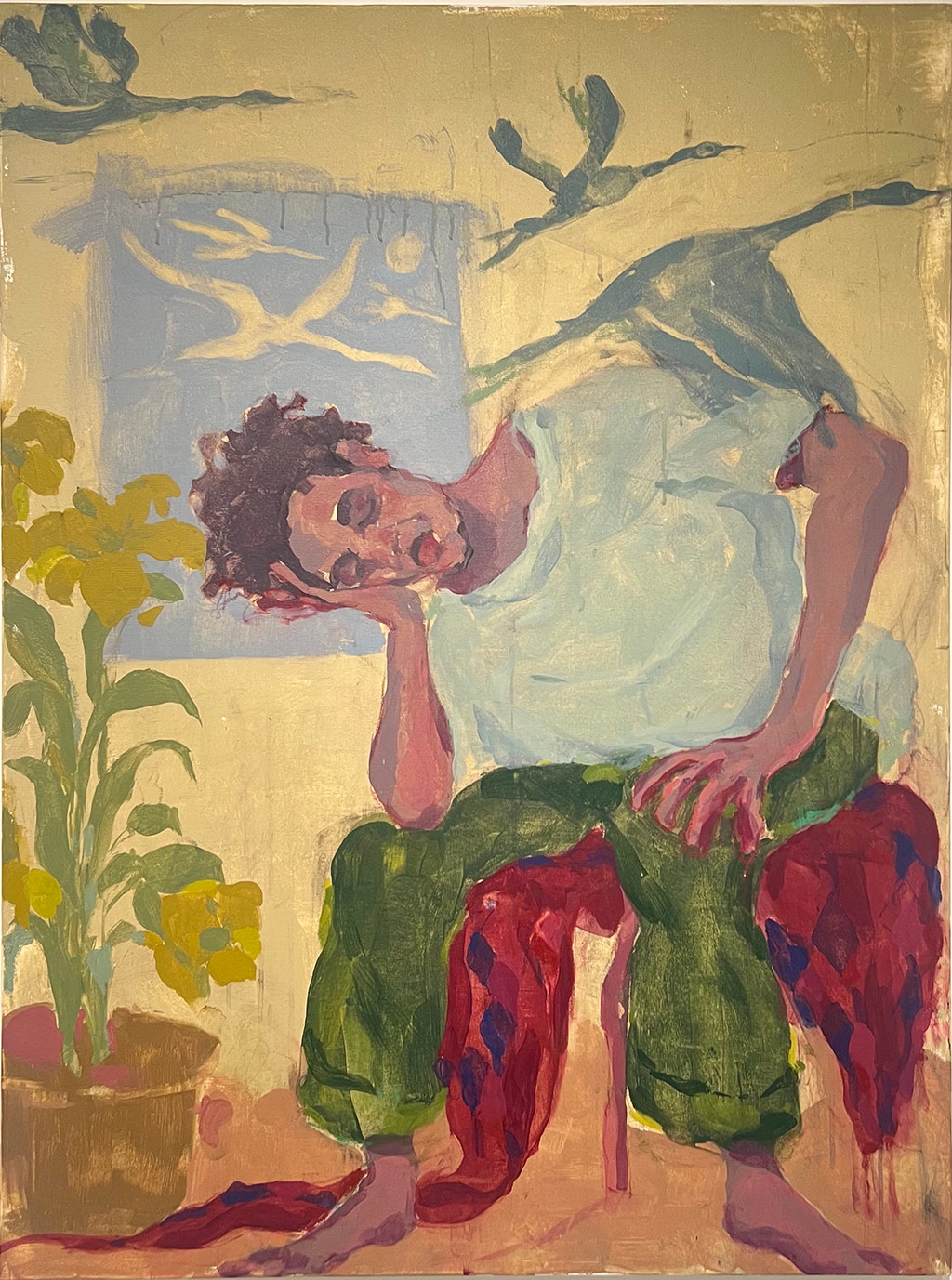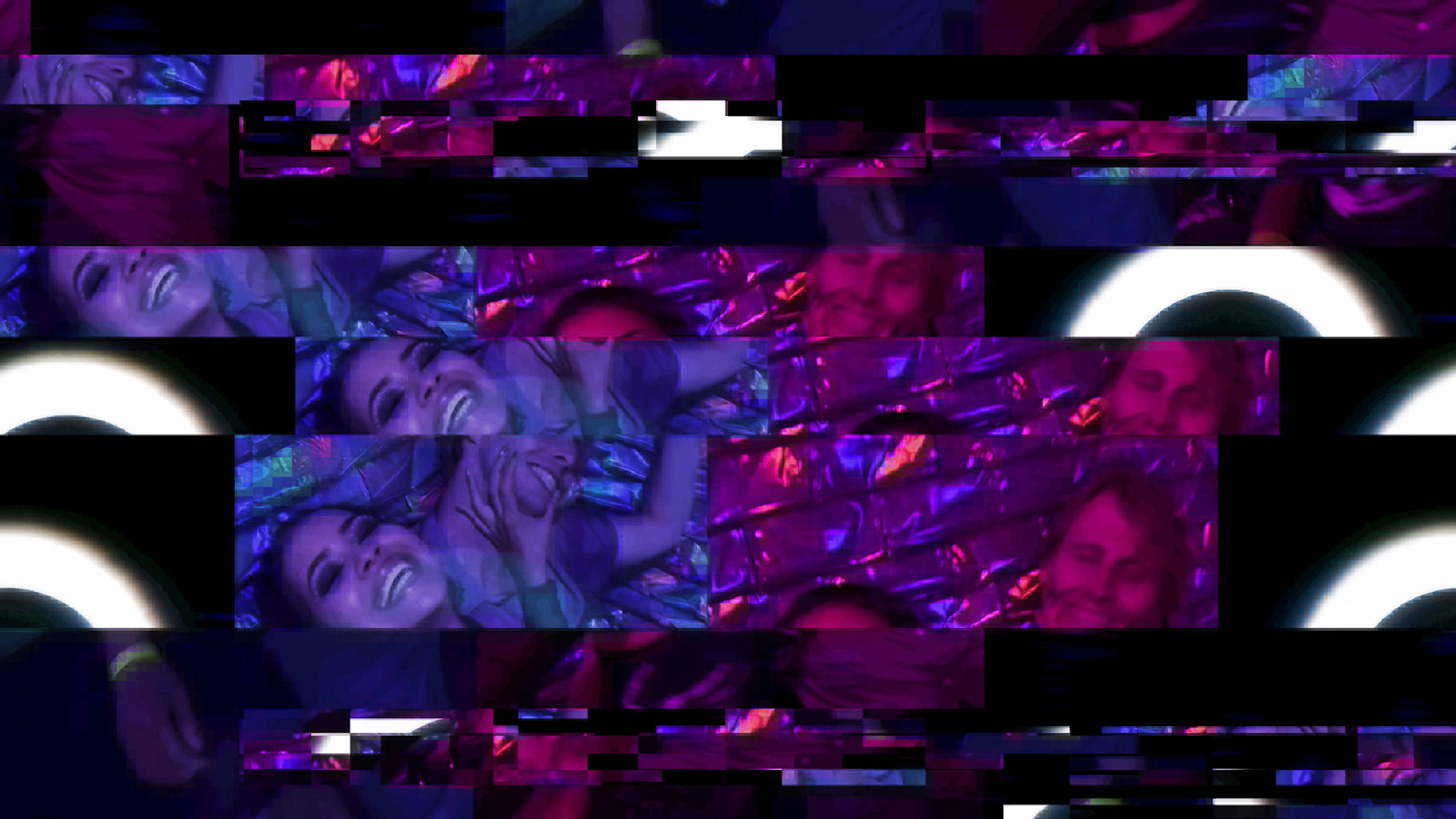
Layers, So Many Layers
Brijean, which is composed of the ever-talented duo Brijean Murphy and Doug Stuart, emerged in 2018 as a promising disco-house-pop project based out of Oakland, California. Six years later, Murphy and Stuart have honed their sound. Macro serves as a dance-filled journey through the past and a glimpse into the possibilities of contemporary music. Throughout its roughly 35-minute runtime, its inherently spacey nature transforms the listener’s headspace and catapults them into a more ethereal realm, where past sounds of disco and baroque pop, modern house and electronic music, and future noises all collide to create something that is equally familiar and unique.
From Stuart’s layered production to Murphy’s delicate vocals, Macro is filled, top to bottom, with endless sounds for listeners to return to and discover.
“I think I had a personal goal of wanting to stretch musically…” Murphy says, revealing that he really wanted to challenge himself with the third record. “One broad intention was to just explore some different sounds that we had — both in palette, like instrumentation, and also in rhythmic feel and feeling.”
The persistence to refine and perfect is felt throughout Macro, with each track feeling as though it has been pushed to the ultimate limit. As soon as one gets used to a song’s sonic environment, Murphy and Stuart carefully usher you into another space — something you never knew you needed.
Stuart also pointed out how trust that had developed through their long-standing relationship made the album a personally and physically rewarding experience for not just the listener, but the duo, as well.
“We were in a relationship for several years before we started collaborating, so I think the chemistry [and] the collaboration [have] a deep foundation, based on a lot of trust and knowing each other pretty well,” Stuart explains. “We have a lot of overlap in our tastes and maybe just enough difference to make stuff together that feels both like it reflects us and also is a little surprising at the same time.”
For example, tracks like “Workin’ On It” and “Roller Coaster,” although quite busy, never feel lazy or sloppily thrown together. Each layer of sound, whether it’s a funky bassline, ethereal vocal effect, or new, punchy percussive instrument adds to the album’s overall sonic environment and truly reflects the duo’s personal goals.
Start Making Sense
Though Macro is a dance project, hidden within the album’s grooves are deeply personal influences. Murphy’s pen documents the difficulties of mortality and finding one’s purpose in life.
“I also wanted to be more considerate and aware of my own process in how I was feeling, what I was processing in my daily life, and my life here on Earth as a little human,” Murphy notes, adding that the album helped him to figure out some of those complexities.
“Breathe,” the sixth track on the album, tackles this head-on. Amidst swirling electronic sounds, gorgeous melodies, and light yet effective percussion, Murphy sings, “I want to do more things that don’t take currency / Like taking walks and dancing where I please / I know I can’t keep giving all my time for free / The internet keeps trying to take my mind from me.”
The track then heads into a chorus that revolves around Murphy softly delivering the message of simply slowing down, embracing the little things in life, and, of course, taking a moment to breathe.
The aforementioned “Workin’ On It” also directly deals with the various difficulties of being a malleable human being on an ever-busy planet. Murphy’s lyrics, matched with an understanding and truly complementary Stuart on production, make Macro what it is. Without a level of comprehension from both parties, such tracks simply would not be as clear, complex, and effective, as Murphy performs the lines, “I’m so tired of this apathy / (From the mornin’ til dawn) / I just want to be the better me / (I’m workin’ on it) / Yeah, I’m workin’ on it / Craving depth and complexity.”
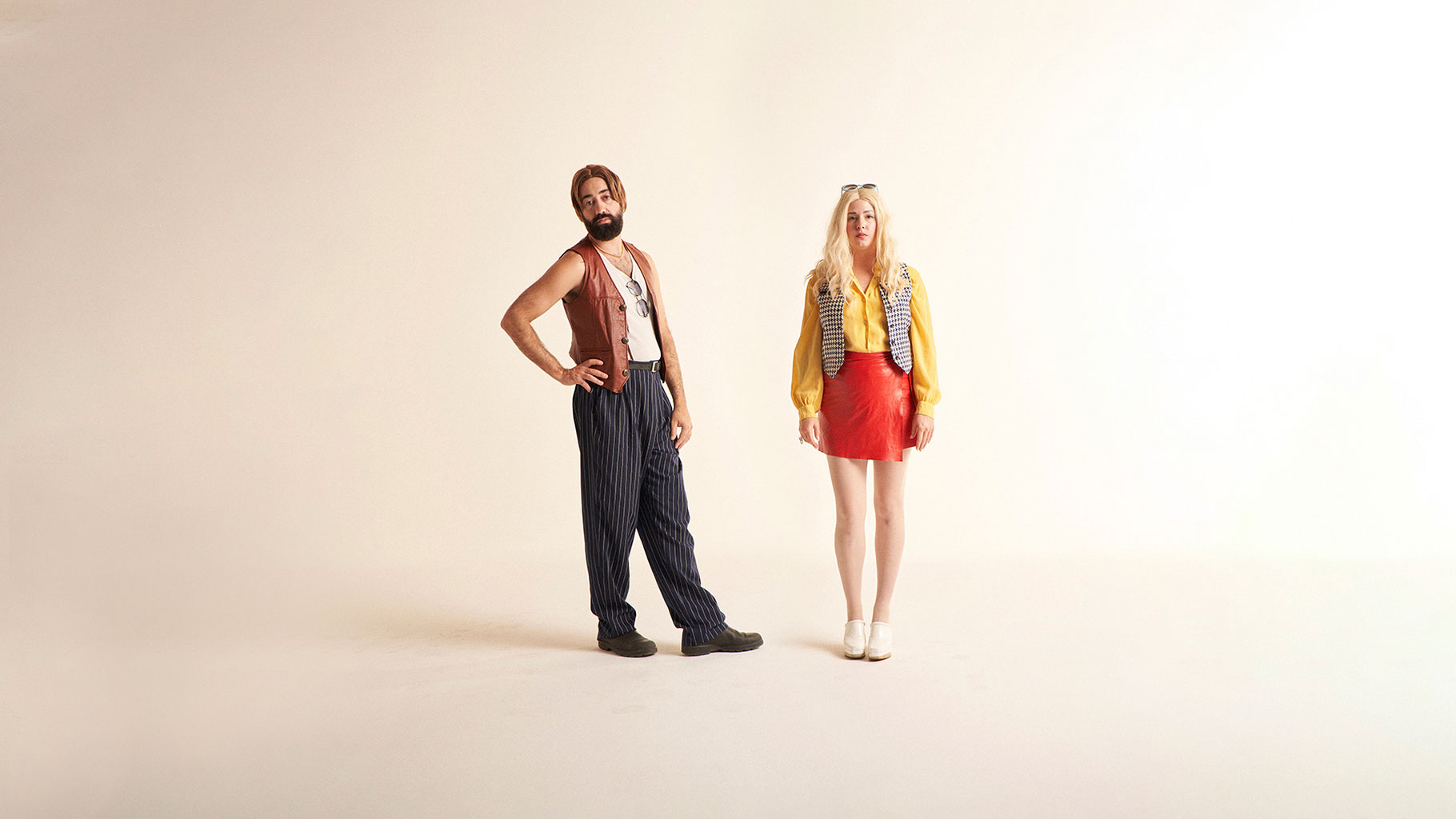
Photography by Swanson Studio
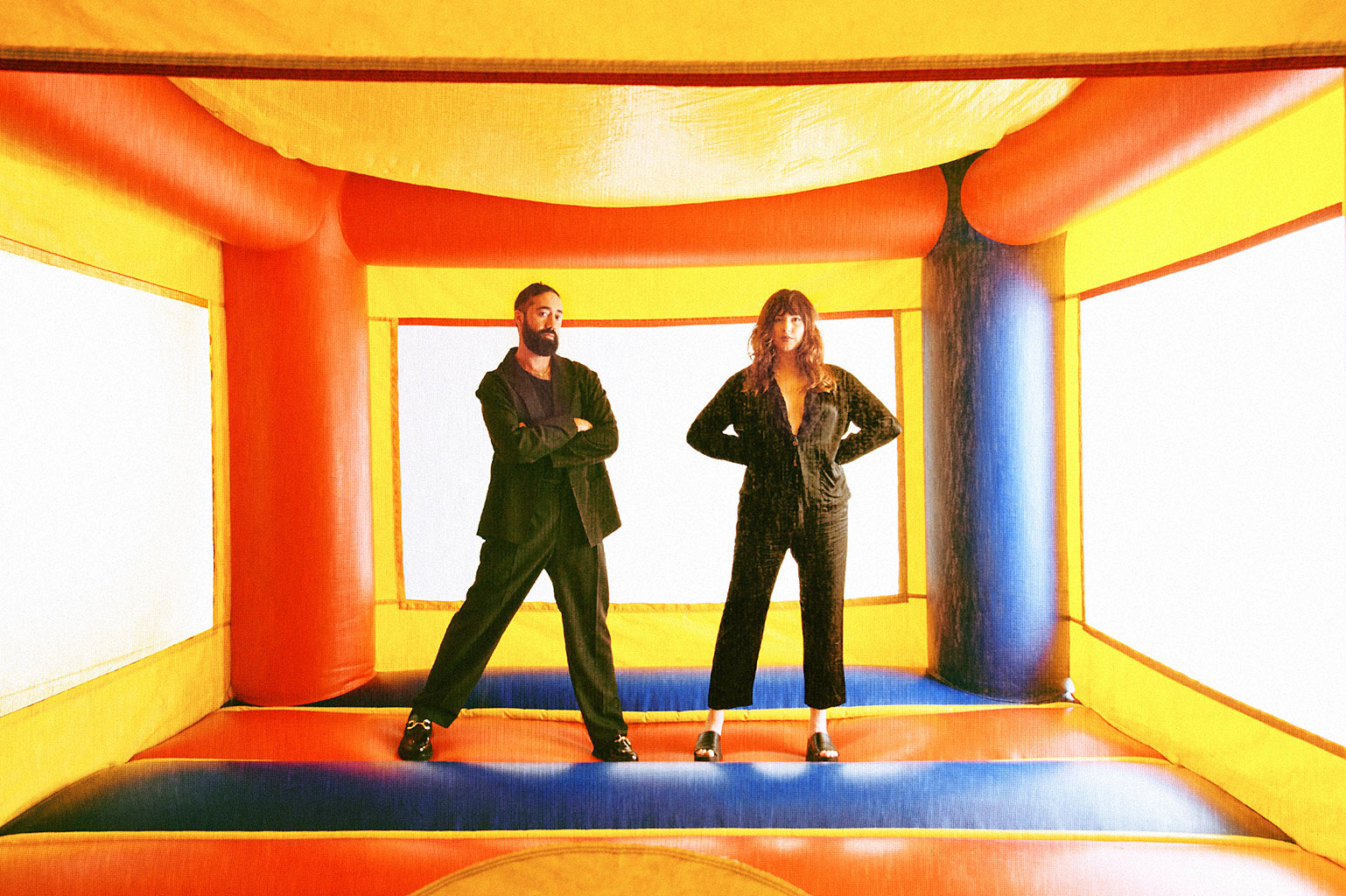
Roots & Routes
Although Macro ostensibly draws from older generations and artists such as Stereolab and Nancy Sinatra, Murphy and Stuart make it evident that they never directly pulled from a specific artist during the Macro sessions. Instead, their own backgrounds and current life phases played the most important role.
Opening up about the influence the duo’s respective childhoods and young adulthoods had on the project, Murphy explains, “I grew up in a home with a studio built into the basement, was always around music, and started playing when I was a kid in this very folk, kind-of-learned familial way. A lot of the patterns are still some of the first patterns my dad taught me.”
Stuart, on the other hand, adventured down a very different route on his musical journey. Growing up in Chicago, he not only consumed and learned from the Windy City’s rich musical history, but also dove headfirst into its later musical treks, as it started to shift away from traditional jazz and into new genres such as house music.
“Neither of my parents played music, but they were both really supportive of [my] learning music,” Stuart says.
Brijean sounds refreshing due to the duo’s ability to merge their experiences in a way that feels seamless and natural, rather than forced.
“Nothing felt really direct, honestly,” Murphy adds, “because I feel that we were very porous during that time and open to a lot of different forms of expressions and not knowing an exact reference to follow or mimic.”
Over Macro‘s 12 tracks, Murphy and Stuart combine their greatest strengths and assumed weaknesses to create a project that is both wholly personal and undeniably groovy. Still, that’s not to say that the creation process was a walk in the park. Like any creative endeavor, Murphy and Stuart ran into mental hiccups.
“A couple months into writing it, we had hit a stride, but we were also kind of feeling it was starting to feel a little less inspired [because] we’ve been at it for a couple months pretty intensely,” Stuart shares. “The remedy was to dress up in various kinds of adventurous stage outfits for the writing and recording, and [it] yielded a lot of fun — even though it was just the two of us in our house.”
“Yeah, we figured out how to have fun,” Murphy adds quickly.
Such fun can be seen visually on Macro‘s photo collaged album cover, where Murphy and Stuart are seen dressed up as various characters living out some sort of play-acting fantasy. In this sense, Macro succeeds at instilling a sense of creativity, a sense of total freedom, and a sense of being whoever you want to be. Brijean doesn’t directly rip off the influences of previous and present generations, but takes the baton from them and continues the race in fun and exhilarating ways.
Ω
